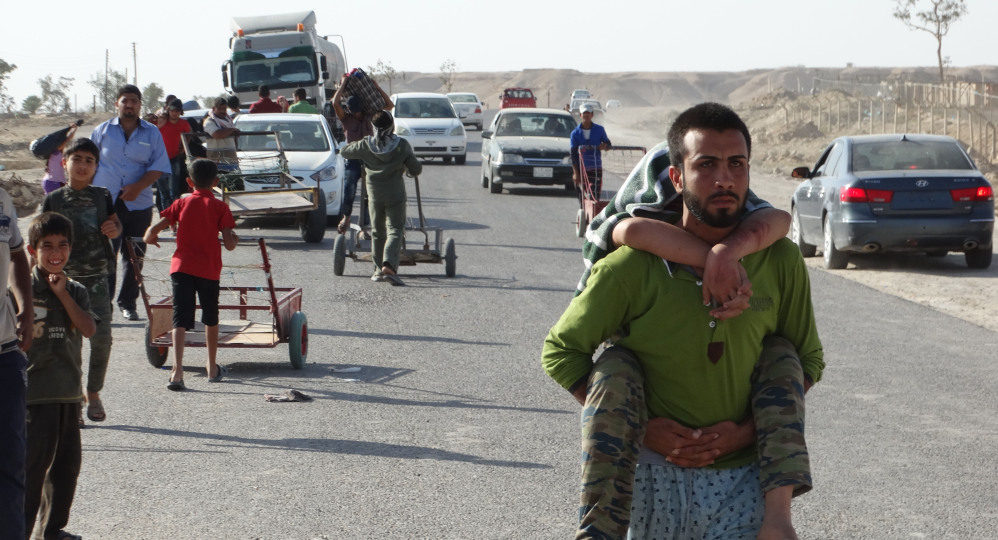IRBIL, Iraq — The Islamic State group on Friday took control of the provincial government center of Ramadi, the capital of Iraq’s largest province, and appeared to be in control of most of the city in a major defeat for the Iraqi government.
Islamic State forces also appeared to be closing in on government positions in two other key locations in Anbar province, the towns of Baghdadi and Karmah, in a broad offensive that if successful would end the government presence in all of the province’s major population centers. The capture of Baghdadi also would cut the supply lines to the Iraqi garrison protecting the strategic Haditha Dam.
At Ramadi, government troops were still fighting in some isolated areas. But the city was essentially under the control of the Islamic State after a fierce assault that began with a series of car bombs on Iraqi government security facilities overnight. By late afternoon, security forces appeared to be in full flight as militants consolidated control over the area and prevented anyone from leaving.
The Islamic State’s black flag was flying over the governor’s compound, witnesses said, and a Ramadi resident reported that an Islamic State victory statement was being read from the public address systems atop mosque minarets in the city, warning people not to try to leave. Cellphone service appeared to have been cut in much of the area.
“Daash is now in full control of the central government compound of Ramadi, and battles are now raging in the last Ramadi areas held by government troops,” said a security officer inside one of the last remaining pockets of government resistance, using the common Arabic acronym for the Islamic State. He asked not to be identified for security reasons and said he expected either to be forced to flee or to be captured by the militants in the coming hours.
“Daash has surrounded the Anbar operations center and heavy fighting is taking place near the headquarters of operations,” said the officer, who was inside the operations center. Gunfire and explosions could be heard over his phone line.
Hours later, the officer’s cellphone went unanswered, and efforts to contact other government facilities or even local residents grew increasingly difficult.
U.S. officials offered a confused response to the events.
At the State Department, spokesman Jeff Rathke conceded that the situation in Ramadi and other Anbar locations was dire. “We’ve said before that there will be good days and bad days. ISIL is trying to make today a bad day in Ramadi,” he told reporters, using the Obama administration’s preferred acronym for the Islamic State.
Send questions/comments to the editors.



Success. Please wait for the page to reload. If the page does not reload within 5 seconds, please refresh the page.
Enter your email and password to access comments.
Hi, to comment on stories you must . This profile is in addition to your subscription and website login.
Already have a commenting profile? .
Invalid username/password.
Please check your email to confirm and complete your registration.
Only subscribers are eligible to post comments. Please subscribe or login first for digital access. Here’s why.
Use the form below to reset your password. When you've submitted your account email, we will send an email with a reset code.